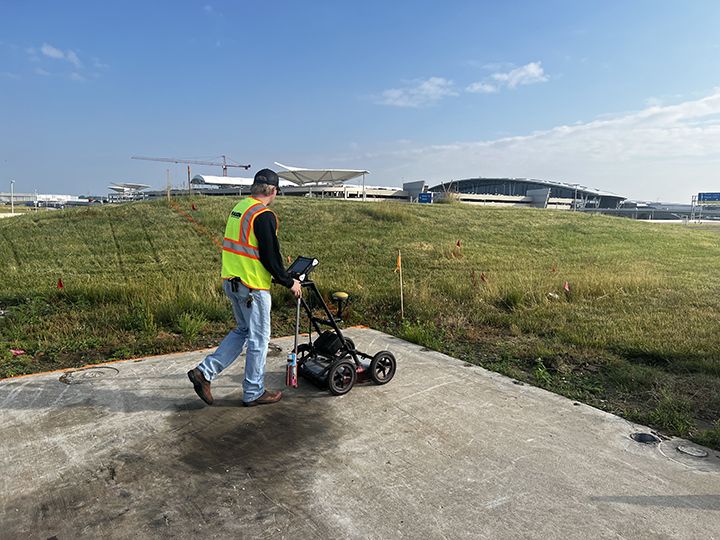
Construction projects, whether big or
small, involve inherent risks. However, one often underestimated danger lies
beneath the surface: underground utilities.
Hitting a buried power line, gas pipe, or water main can have catastrophic
consequences, causing injuries, project delays, and costly repairs. This is
where private utility locating plays
a critical role in ensuring job site safety.
Private utility locating
is the process of identifying and marking the location of underground utilities
that are owned and maintained by private entities, as opposed to public
utilities. These privately owned utilities are not covered by the national "Call
811" service, making it crucial for property owners and contractors to
take extra steps to ensure their safety and avoid damage during excavation or
construction projects. Examples of private utilities include:
- Electrical lines: Serving individual commercial
properties, businesses, or homes, often branching off from the main public
lines.
- Gas lines: Supplying natural gas or propane to
specific properties.
- Water and sewer lines: Connecting individual
properties to the main public systems or serving private wells and septic
systems.
- Underground telecommunications, fiber, and data cables
- Underground sprinkler systems
- Drainage systems
- Preventing Utility Strikes: By accurately pinpointing the location of buried utilities, private locating helps prevent accidental strikes during excavation or digging. This significantly reduces the risk of electrocution, explosions, flooding, service disruptions, and environmental damage.
- Protecting Workers: Knowing where utilities are located allows construction
crews to work confidently and safely, avoiding areas with potential hazards.
This protects workers from serious injury or even fatalities caused by
accidental contact with live utilities.
- Improved Planning: With precise utility maps, construction teams can plan their
projects more efficiently, optimizing excavation routes and avoiding areas with
dense underground utilities.
- Saving Time and Money: Avoiding utility strikes minimizes project delays and costly
repairs. It also eliminates potential fines and legal issues associated with
damaging underground infrastructure.
Who needs private utility locating?
Anyone planning to
excavate or dig on private property should consider private utility locating.
This includes:
- Contractors and construction companies: Essential for any excavation work to avoid utility strikes and ensure worker safety.
- Developers, surveyors, and engineers: To plan projects effectively and avoid costly delays due to unforeseen utility conflicts.
- Municipalities: To accurately locate their own infrastructure on their private property for maintenance and repair.
- Homeowners: For projects like
installing a fence, deck, pool, or landscaping.
Methods for Private Utility Locating:
- Hiring a Private Utility Locating Service: Companies
like Mason Private Locating specialize in locating and marking underground
utilities using various techniques like electromagnetic detection, ground
penetrating radar, CCTV cameras and vacuum excavators.
- Reviewing Property Records and As-Built
Drawings: These documents may contain information about the location
of private utilities on a property.
- Visual Inspection: Look for above-ground
indicators like utility boxes, meter pits, or valve covers that may
suggest the presence of underground lines.
By investing in private utility locating, you are prioritizing safety, protecting infrastructure, and contributing to the overall success of your project.
- Always call 811 before digging, even if you suspect
only private utilities are present. They can help identify and mark
public utilities, which is still crucial for safety.
- Clearly mark the proposed excavation area.
- Use caution when digging near the marked locations of
underground utilities.
- Consider using hand tools instead of power equipment when digging near utilities.













